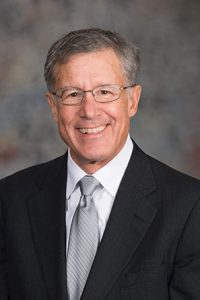Judicial pardon process would be more efficient, transparent
Members of the Judiciary Committee heard testimony Jan. 24 on a bill that would expedite pardon hearings.

LB968, sponsored by Omaha Sen. John McCollister, would require the state Board of Pardons to hold hearings every 90 days to consider applications for pardon.
The Board of Pardons transferred its administrative duties to the Nebraska Crime Commission in 2019, McCollister said, but still recognizes the need to improve its administrative procedures.
“The board’s representative has assured me that they are committed to resolving the current backlog so that all viable applications can be heard in a timely manner,” he said.
The bill would require that an applicant must be scheduled for a hearing and considered by the board at its next regularly scheduled meeting, and hearings on unrelated applications could not be combined. The board would be required to issue a written decision outlining the relief requested, the specific facts considered and its final decision.
Finally, the Board of Pardons would be required to submit a report to the Legislature annually detailing the pardons considered and granted in the preceding year.
Teela Mickles, founder and CEO of Compassion in Action, supported the bill. Her organization has attended several board hearings to testify on behalf of pardon applicants, she said, only to witness mass denials of applications without testimony from hearing attendees.
“People expect positive things [when they apply] and look forward to their opportunity,” Mickles said. “The process is just disgusting.”
Representing ACLU of Nebraska, Spike Eickholt also testified in support of LB968. The Nebraska Supreme Court has interpreted a pardon as an “act of grace,” not an entitlement, he said, but it still should be a fair process for applicants.
“At the very least, the process should be meaningful,” Eickholt said. “Showing up for a hearing when the outcome already has been decided is not meaningful. Filing for a pardon and never hearing back is not meaningful.”
No one testified in opposition to the bill and the committee took no immediate action on it.

